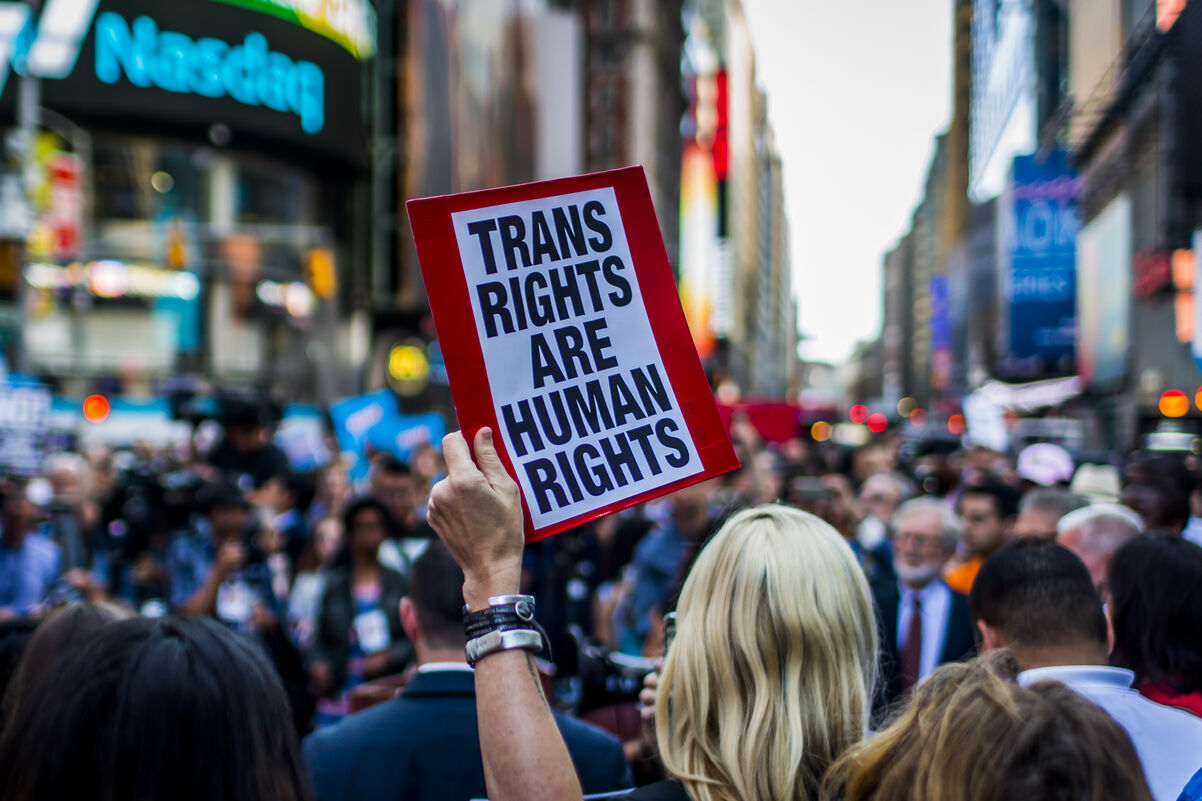The Trump administration is actively working to rollback protections against discrimination in healthcare, advocates warned on Thursday.
The Department of Health and Human Services (HHS) announced in May that it would be revisiting Section 1557 of the Affordable Care Act, which prohibits health agencies that receive federal funding from discriminating on the basis of characteristics like sex, race, and most recently, gender identity.
Harper Jean Tobin, policy director for the National Center for Transgender Equality, says that these guidelines were a critical step forward for trans peoplewho are often shut out of medical services just because of who they are.
“The rule clarifies that providers must treat transgender patients with dignity,” says Tobin of the 2016 policy, which was set to be implemented in January. “It also clarifies that insurance companies may not single out transgender consumers with coverage exclusions and may not deny people who need tests or treatment that are not typical for their gender.”
Section 1557, however, was met with a federal injunction in December 2016 when a Texas judge blocked its implementation. Reid O’Connor, a U.S. district judge, claimed the policy “pressures doctors to deliver healthcare in a manner that violates their religious freedom.”
Rather than fighting that ruling, the HHS announced it would reconsider the guidance.
Following the Trump administration’s ban on trans military service, a final decision on Section 1557 could be reached by as soon as next month. The American Medical Association reports that O’Connor mandated frequent status reports from the White House on its deliberation. The next briefing is set for Oct. 16., five months after the policy was reopened.
Tobin warned in a media call that any changes to Section 1557 would be extremely harmful to trans people.
“We hear every day from people being discriminated against in healthcare,” Tobin said. Those who call into the National Center for Transgender Equality to report discriminatory bias, she claimed, are referred to as “it” or “freak” by health providers. Others are “denied coverage for medications and treatments that are provided to other people.”
A 2010 survey from NCTE and the National LGBTQ Task Force showed that over a quarter of trans people report being harassed when seeking healthcare. That makes this population less likely to go to the doctor, even for a cold.
Advocates alleged that even though the Trump administration has yet to act on Section 1557, it has already done real harm to equality in healthcare.
Tobin claimed that following the announcement that gender identity would be included in the policy, a survey of 16 states found that every single one of them had “eliminated broad exclusions on transition-related healthcare.” Those exclusions, for instance, would prevent a trans people from getting insurance coverage for hormones or gender-affirming care.
With HHS likely to strike down the rule under anti-LGBTQ Secretary Tom Price, the state of Wisconsin has already begun rolling back trans health coverage.
Transgender people, advocates claimed, aren’t the only community who stand to be harmed by the erosion of nondiscrimination protections in public health settings. Mara Youdelman, managing attorney of the National Health Law Program’s D.C. office, pointed to the ways in which it could harm undocumented people.
Section 1557, among its many provisions, required health centers to offer interpreters and written translation to individuals who lack fluency in the English language.
“One way of helping limited English proficiency patients and clients know that they have rights to language services was a requirement to include a tagline, a very short sentence in a non-English language that informs non-English speakers how to request language services and what their rights are,” she said.
Youdelman said that advocates are worried that the HHS could “reopen other parts of the rule protecting limited English patients.”
“They look likely to proceed,” she said.
Tobin and Youdelman were joined on the call by Fatima Goss Graves, president and CEO of National Women’s Law Center; Judith L. Lichtman, a senior adviser for the National Partnership for Women & Families; and Vanita Gupta, who served as the Principal Deputy Assistant Attorney General during the Obama administration.
Gupta, a champion of trans rights under Obama, said that any action taken against Section 1557 would also harm women, people of color, and other marginalized populations.
“Rather than being distributed equally, the burdens of healthcare fall disproportionately on communities of color and other underserved populations, which are more likely to have higher rates of unemployment and jobs that don’t have health insurance,” claimed Gupta, who said that getting rid of the policy would make healthcare “out of reach” for many Americans.
“We have to ensure that everyone in this country has access to quality, affordable healthcare,” she said.
Help make sure LGBTQ+ stories are being told...
We can't rely on mainstream media to tell our stories. That's why we don't lock our articles behind a paywall. Will you support our mission with a contribution today?
Cancel anytime · Proudly LGBTQ+ owned and operated
Read More in Impact
The Latest on INTO
Subscribe to get a twice-weekly dose of queer news, updates, and insights from the INTO team.
in Your Inbox














